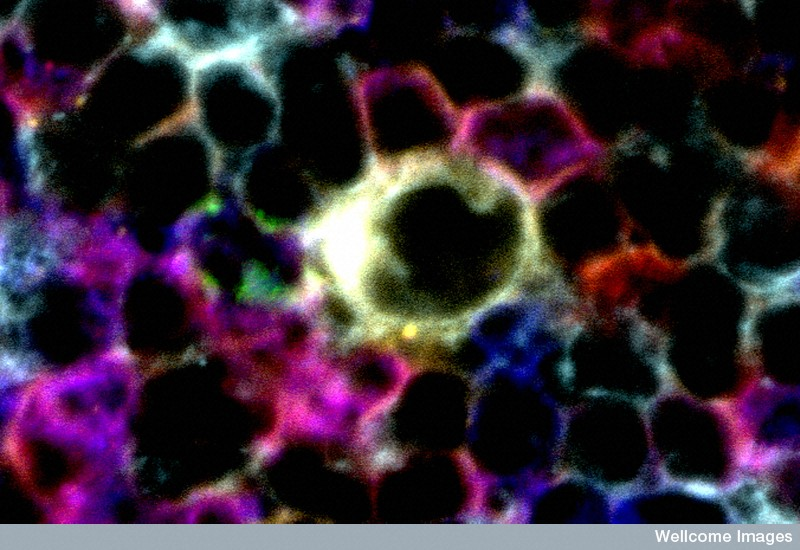Drug target for asthma discovered

The over-active immune cells responsible for asthma depend on the gene BCL11B to develop into mature cells, according to a study published in the Journal of Experimental Medicine. The identification of this gene's role could help in the search for asthma therapies.
Innate lymphoid cell 2 (ILC2), one of a recently discovered class of innate immune cells, is responsible for regenerating respiratory tissues following influenza virus infection. However, an excess of active ILC2 cells can cause lung inflammation, leading to asthma. Researchers hope that targeting BCL11B will enable them to regulate the creation of ILC2s.
"Before now, asthma treatment has focussed on treating symptoms," says Professor Gordon Dougan, a senior author and group leader at the Wellcome Trust Sanger Institute. "Now that we have joined the dots between the development of ILC2 cells and the expression of BCL11B, we can begin looking for drug targets that will tackle asthma's root cause."
In previous research, it has been found that deleting both copies of the Bcl11b gene in a mouse embryo will cause the animal to die at birth. To observe the reason for this, researchers treated normal mice with Tamoxifen to disable the Bcl11b gene. Three weeks after treatment, these mice were found to have just 6 per cent of the normal number of ILC2 cells because no new ILC2 cells were developed from the progenitor cells in the blood. The treated mice became extremely vulnerable to influenza infection.
Scientists also observed mice with just one copy of the Bcl11b gene, rather than the normal two copies. They were surprised to find that reducing Bcl11b expression led to significantly higher numbers of mature ILC2 cells than were found in normal, wild-type, mice. This indicates that the activity of the gene may supress the production of mature cells as well as helping early cells to develop.
"These innate immune cells are essential in the fight against infection but having too many can cause serious problems," says Dr Pentao Liu, a corresponding author from the Sanger Institute. "BCL11B has to be there to help ILC2 progenitor cells to reach maturity but it must also be active to suppress the over-creation of mature cells. Our focus must now be on finding a way to manipulate gene expression to boost or reduce cell populations as required."
"Previous studies have shown that BCL11B is responsible for regulating adaptive immune cells, called T-cells, and in this research we demonstrate that it also controls the activity of these innate lymphoid immune cells," says Dr Yong Yu, first author from the Sanger Institute. "This gene is clearly important for maintaining our defences and we hope that further research will facilitate a better understanding of the role it plays in human disease."
This research is published in parallel with another project based at the Medical Research Council Laboratory of Molecular Biology (MRC-LMB); this team has independently reached the same conclusions. The role of BCL11B in the development of T-cells, a type of adaptive immune cell that recognises abnormal cells, was only recently discovered, prompting widespread interest in the gene.
"Our collective understanding of innate immune cells is growing rapidly," says Dr Andrew McKenzie from the MRC-LMB. "These cells are our body's first line of defence against infection and disease, so there is great potential for this area of research to have significant clinical impact in the near future."
More information: "The transcription factor Bcl11b is specially expressed in group 2 innate lymphoid cells and is essential for their development." Journal of Experimental Medicine 2015 DOI: 10.1084/jem.20142318
















